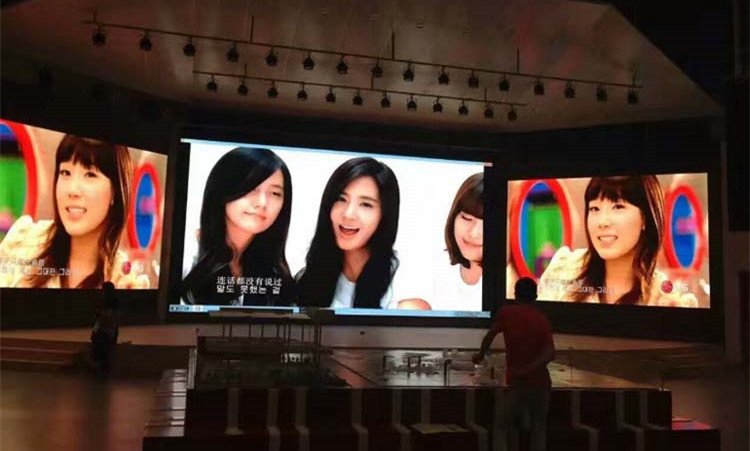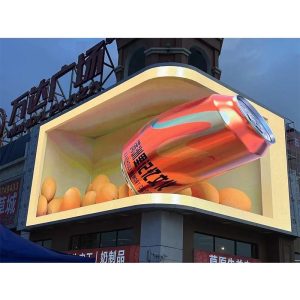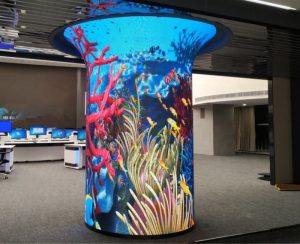ትላልቅ የቦርድ ሰሌዳዎችን ለማፅደቅ ሂደት ውስጥ, She ንዙን እንዲሁ በሚቀመጡ አካባቢዎች እና በመንገድ ክፍሎች ላይ ጥብቅ ገደቦች አሉት. ለምሳሌ, የቦታ ቦርድ ሰሌዳዎች ለመኖሪያ ቤቶች በጣም ቅርብ መሆን የለባቸውም እና በአጠቃላይ ቢያንስ ርቀት መያዝ የለባቸውም 20 ከተቃራኒው የመኖሪያ አካባቢ ሜትሮች. ቢልቦርዶች ትራፊክ ላይ ተጽዕኖ ማሳደር የለበትም, በቀጥታ መገናኛዎችን መነጋገር የለበትም, እና ትልልቅ የቢልቦርድ ሰሌዳዎች ከኋላ በኋላ ዝቅ ሊደረግባቸው ይገባል 10 PM.
ቀላል ብክለት ምንድነው??
የፀሐይ ብርሃን ብሩህነት 2000CD ነው (ሲዲ ብሩህ ግቤት ነው, ሉሆስ ተብሎ ይጠራል), ከፀሐይ ብርሃን ብሩህነት ሁለት እጥፍ ይበልጣል. በቀጥታ ሲታይ, የሰው ዓይን ምቾት ሊሰማው ይችላል. ለቤት ውጭ የ LED ማሳያዎች ዓለም አቀፍ ብሩህነት ደረጃ 5000 ሴ.ዲ., እና ከ 5000.ዲ..
ለቤት ውጭ የመውደቅ ቅጥሮች በቻይና ውስጥ የ Light የማሳያ ማያ ገጽ ብሩህነት የሌላቸውን የ LED ማሳያ ማያ ገጾች ምንም የተዋሃደ ህጋዊ ደረጃ እንደሌለ ተዘግቧል, ግን በአጠቃላይ ከ 5500 ሴ.ዲ. ብሩህነት ማስተካከል በጣም ተስማሚ ነው, እና ከ 6000cd መብለጥ የለበትም.
1、 በሲስተሙ መላቀቅ የሚችል የድህነት ማስተካከያ ስርዓት መከተል
የአካባቢ ብሩህነት በቀኑ እና በሌሊት በእጅጉ ይለያያል, በተለያዩ ጊዜያት እና አካባቢዎች. የመርከብ ማሳያ ማያ ገጽ መልሶ ማጫወቻ ብሩህነት ይበልጣል 60% የአከባቢው ብሩህነት, በዓይኖቹ ውስጥ እንመካለን, ይህ ማለት ለሰው ልጆች ብርሃን ብክለትን ያስከትላል ማለት ነው. ከቤት ውጭ የሆነ ብሩህነት መሰብሰብ ስርዓት በመጠቀም, የአካባቢ ብሩህነት በማንኛውም ጊዜ ሊሰበሰብ ይችላል. የማሳያ የቁጥጥር ስርዓት የስርዓት ውሂብን በመቀበል የሶፍትዌር ብሩህነት በራስ-ሰር ተስማሚ ያደርገዋል.
2、 የብዙ ደረጃ ግሬስካርኬኬኬት እርማት ቴክኖሎጂ
ተራ የማሳያው ስርዓት 8-ቢት የቀለም ማሳያ ተዋናይ ይጠቀማል, ይህም በአንዳንድ ዝቅተኛ ግርማል እና በቀለም ሽግግር ውስጥ ጠንካራ ቀለሞችን ያስገኛል. እንዲሁም ባለቀለም ብርሃን የመረበሽ ችግር ያስከትላል. አዲሱ የ LED ማያ ገጽ ቁጥጥር ስርዓት ሀ 14 ቢት ቀለም ማሳያ ተዋረድ, በሽግግር ውስጥ ቀለሞችን ጠንካራነት በጣም ያሻሽላል. በሚመለከቱበት ጊዜ ሰዎች ለስላሳ ቀለሞች እንዲሰማዎት ያስችሉ. ከብርሃን የብርሃን ችግርን ያስወግዱ.
3、 የመጫኛ አካባቢያችን ምክንያታዊ ምርጫ እና ምክንያታዊ የማሳያ ማሳያ አከባቢን እቅድ ማውጣት
ርቀትን ለማየት አንድ ግምት ውስጥ ያለ ግምት አቀፍ ዕቅድ አለ, የማየት አንግል, እና አሳይ, የምስል ምርምር ለማሳየት ለማሳየት የማያ ገጽ እይታ ርቀት እና የመመልከቻ አንግል. ማሳያ ማያ ገጾች ሲደናቅፉ, የዲዛይን ፍላጎቶችን እና ምክሩን ለማሟላት ጥረቶች መደረግ አለባቸው.
4、 የመጫወቻነት ይዘት ምርጫ እና ንድፍ
LED ማያ ገጾች ሕዝባዊ ሚዲያ ናቸው, የህዝብን ደህንነት ጨምሮ, ማስታወቂያ, እና አመላካች ምድቦች. የሚጫወተውን ይዘት ሲመርጡ, ከህዝባዊው መስፈርቶች ጋር ስምምነት ላይ መድረስ እና የስነ-ልቦና ውድቅ ማድረግ አለብን, እንዲሁም የማያ ገጽ ቀለል ያለ ብክለትን ለመከላከል አስፈላጊ ገጽታ ነው.
የብርሃን ብክለትን የመፍታት ማያ ገጾች ችግሩን መፍታት አስፈላጊ ነው. የብርሃን ብክለትን ለመቀነስ ቴክኒካዊ መንገዶችን እና መመሪያዎችን እና መመሪያዎችን እየተጠቀሙ እያለ, እንዲሁም የአስተዋዋቂዎችን ፍላጎቶች እና የህዝብ የስነልቦና የስነልቦና ፍላጎቶች ማስተባበር አስፈላጊ ነው. በእኩል እና በሳይንሳዊ መንገድ የ LED ማያ ገጾች በመጠቀም ብቻ በከተማችን ውስጥ ማከል እና ቀለምን ማከል ይችላሉ!




